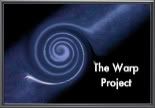Again Star Trek focuses on extrasensory and paranormal power development in humans. This time the story develops through the unusual demeanor of a teenage boy found alone on a planet. Having raised himself with only a couple of recorded tapes to teach him speech and ideas, he is overly enthusiastic about everything he encounters on board the Enterprise. It turns out included in this process of discovery are the needs to learn both moral and social norms.

Episode Quick Summary
The episode starts with Kirk greeting a three person party that beams aboard the ship. It turns out the party includes two officers from another ship that are bringing aboard a teenager discovered alone on a planet. The boy, Charlie Evans, was the sole survivor of a crash and apparently raised himself from the age of 3. Quickly after Charlie's arrival unusual events begin to happen aboard the Enterprise. The crew is also forced to help Charlie adjust to his new surroundings. As Charlie experiences high frustration over the new demands of living with other people we see him struggle with the choice between controlling himself or using his paranormal powers against the crew.
Episode Tidbits
This episode offers us the first hand-to-hand combat scene of the Star Trek universe complete with bright orange tights and a shirtless Kirk.
The episode makes a wonderful Blake reference when Charlie takes control of Spock causing him to spontaneously recite "Tiger tiger burning bright, in the forest of the night...." when he attempts to speak. Spock tries to fight the problem but instead Charlie forces him to recite other poetry including Poe's "Raven." The moment simply deepens my affection for Nimoy's character.
For as unemotional as Spock is supposed to be he shows a high level of both frustration, and then charm in this episode. The tension between he and Uhura also continues into this episode through a showy musical interlude in which Spock plays a stringed instrument while Uhura improvises a sing along. The song includes Uhura dancing in a way that finally answers the question of how on earth the women of the Enterprise--Uhura and Janis--manage to wear dresses that honestly only just cover their bums--they have matching hot pants on underneith.
Again we watch Kirk beat Mr. Spock at a game of three dimensional chess. Charlie takes over the game play with Spock, quickly becoming frustrated with his own lack of understanding about the game. Facing his own frustration he melts the chess pieces.
Though he is initially excited at the possibility of interacting with other people, part of Charlie's education turns out to be a deeply moral one. He discovers that it isn't only use for someone that determines how or if he interacts with people. People try to help him understand respect for others. Unfortunately, Charlie's takes his experience of being corrected as deeply frustrating, and to imply that people on board the Enterprise simply don't like him. Kirk attempts to talk to Charlie and help him learn that life is simply about facing the reality of that there are a million things you can't have, and a million things you can't. Life, according to Kirk is about facing your own limitations.
In this way, the Charlie X episode explores the balance between human emotional needs or desires, on the one hand, and the ethical concerns of interacting out of consideration for others. Charlie's struggle reveals that it is difficult to be ones own solitary guide for sorting out such moral life. The episode highlights the old cliche that man is not an island. Instead, the guidance of a dynamic moral figure (Kirk, in this case) turns out to be a valuable, perhaps necessary component of developing genuine moral personhood, not to mention the prior influence of group interactions. More than that, however, Charlie X teaches us that a person's ability to develop their own self control over their desires is essential. Not, perhaps to simply ignore those desires, but instead to integrate them into that healthy balanced, reasonable life. That self control, this episode suggests, is necessary to live in accord with others and so achieve the more developed interests a healthy person seeks--love, relationships, and fulfilling exchange with others.






3 comments:
Wouldn't Spock be a better 'guiding' light for this kid than Kirk (who seems a poor choice)?
oh, preach a little harder to the choir. i know. i know.
though, i will suggest that tng offers a varient on what you suggest when data becomes the guiding light for a boy that is the sole survivor of a craft implosion within a nebula and then must learn how to recover from his grief aboard the enterprise. data of course then goes on to save the entire Enterprise as well.
this is part of what is wonderful about the move from the original series to the next generation, we get to move up the spiral of sophistication on ethical education--the shift in perspective revealing to us the historicity of our ability to process, at a societal level, the moral good. this is an interesting perspective to consider for those of us that are in lustful adoration of the tng universe and yet must swallow the brutal reality that there are huge ethical problems within it as well. problems that reveal the limits of the progress in our current (real world) society around questions of understanding others. that is, the star trek universe is written from our own real world and so while it stands as a projected ideal, that ideal is still utterly intertwined with the level of progress we've made ethically within our own real world. we are the ones writing the stories, after all. the limitations to be seen in tng perhaps play out most obviously in relation to gender, but go far deeper than that.
but, also, kirk actually shows himself as an interesting figure for moral leadership in these early episodes. in charlie x he is able to utilize authoritarian directness in a way that is appropriate to the circumstance. we also see in this episode kirk being forced into taking up his own demands of leadership--insightful, clear discussion of the complex demands of "right" social interactions, for example--more thoroughly than he reveals himself to be ready for. i appreciate that in charlie x kirk is presented still very much as the unique cowboy of the stars we understand him to be from the series as a whole, but here he is very much the cowboy in process. he doesn't yet show the total arrogance we gloss him with later. i like that star trek does reveal someone like kirk to have vulnerabilities and so show character development over time too.
Post a Comment